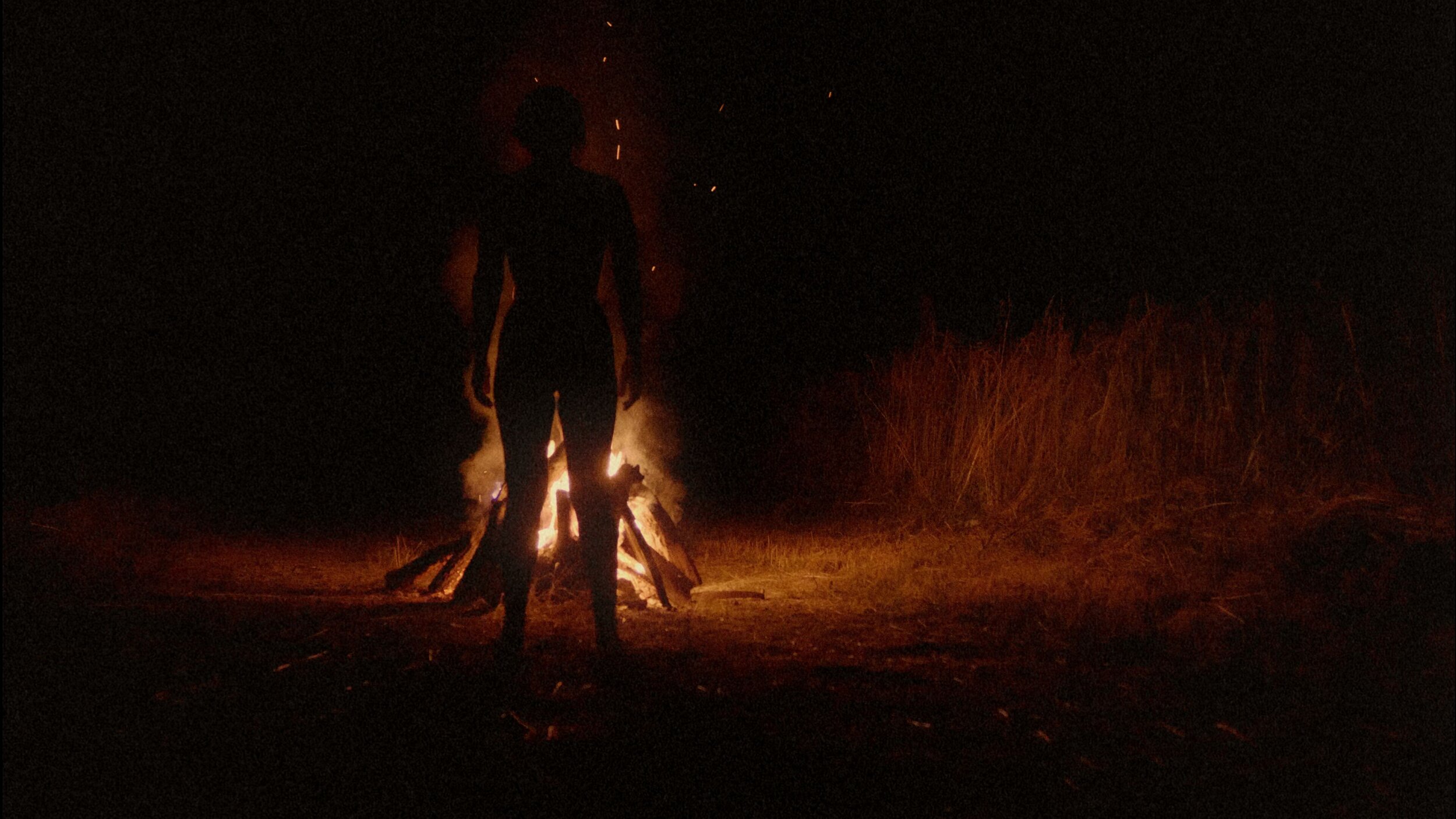[World Premiere Review] Dementer
“One...two...three…” a voice continues to chant over an assortment of images, ranging from a woman standing naked in front of a bonfire to a creepy house. Blood and fire. Runes burned into the back of the same woman. It may be six years removed from Chad Crawford Kinkle’s debut Jug Face, but Dementer, his sophomore film, mines similar religiosity, cults, rituals and dark deeds.
This time, the woman is named Katie (Katie Groshong) but she doesn’t feel far removed from the troubles that plagued Ada in Jug Face. As we’re introduced to her, she’s nervously interviewing for a job at Skills Development Services (SDS), a real life community agency that provides services for people with intellectual and developmental disabilities. “Real Life” is the phrase of the day, as writer/director Kinkle has based his movie around his sister Stephanie, who has Downs Syndrome. The rest of the small cast seems pulled directly from SDS work, including various members of SDS.
Katie has fled some unknown backwoods cult, but she retains the scars, both physical and mental. She doesn’t sleep. Her car is full of icons and charms, presumably for protection, and she carries a notebook filled with rituals and iconography. She suffers from occasionally painful headaches and flashbacks (one...two...three…) to the cult. “It’s gonna be fine,” she tells herself.
But it’s not.
As she learns the ins and outs of the job, she meets and feels a bond with one of her patients named Stephanie (Stephanie Kinkle). But the headaches continue and weird things start to happen at the group home, including a symbol painted in red on the wall. Katie keeps having these flashes involving a man (Larry Fessenden), a house and a lot of blood. So when Stephanie throws up and starts to feel ill, Katie races to stay one step ahead of the mysterious cult she knows has its eyes on her patient.
Dementer is a very quiet film in the way it presents the horror. A slow burn that just continually churns, like the soundtrack by Sean Spillane that just pulses in the background. Kinkle and cinematographer Jeff Wedding shoot the film very naturally. It feels, at times, like a documentary about the SDS. Strip away the occasional headache, cult icons and nightmares and it could be a drama about the people who take care of adults with intellectual/developmental disabilities. Cinéma vérité aficionados will be in their zone here and loving it.
It’s not until the third act that the film shows its hand. By then, it might be too late for some people. It’s a very idiosyncratic film, much like Kinkle’s first film. It feels deeply personal and the fact that it features people with disabilities as actual people and not as horror movie stereotypes is refreshing in a genre that can often rely on mental illness and developmental issues as a plot point. But for most of the runtime it can feel like nothing is really happening. Kinkle makes the viewer work to tie the nightmares and rituals together as puzzle pieces. I like a good slowburn, but Dementer tested my patience a couple times.
But the third act and the climax put the entire preceding 80 minutes in stark relief and made me question what I had experienced in a fantastic ways. It’s a singular vision that excites me about the talent working in indie horror right now, even if it didn’t completely jell with me. Fans of Jug Face and those willing to stick it out will find a lot to love. It's the kind of movie that will be someone's favorite film this year.


![[World Premiere Review] Dementer](https://images.squarespace-cdn.com/content/v1/5b39608d75f9eef54c62c3f0/1570663962073-GPNUOAZYBUOLQRJD2KJR/KW6c4LmA.jpeg)


![[AYAOTD? Recap w/ Erin Callahan] 1.12 "The Tale of the Prom Queen"](https://images.squarespace-cdn.com/content/v1/5b39608d75f9eef54c62c3f0/1570761221982-5EBWY7XS9SJ1R28GOERH/1.12+Prom+Queen.jpg)

![[Cinepocalypse 2019 World Premiere Review] Attack of the Demons blew me away](https://images.squarespace-cdn.com/content/v1/5b39608d75f9eef54c62c3f0/1559517754151-Y339R0C4DJ4NESQ5QI0X/DemonsTeaserPoster.jpg)
![[Cinepocalypse 2019 World Premiere Review] The Swerve is a tense and heavy drama](https://images.squarespace-cdn.com/content/v1/5b39608d75f9eef54c62c3f0/1560029467660-TS8TNHWILYXPMW39FQ3V/MV5BY2VlYmQ5MjUtNWRjMC00MWExLWExMzYtY2FiYWUxYTlkY2JmXkEyXkFqcGdeQXVyNTE1MzEyMjY%40._V1_SY1000_CR0%2C0%2C677%2C1000_AL_.jpg)
![[Sitges 2019 World Premiere Review] The Shed is Great Until it Falls into Typical Tropes](https://images.squarespace-cdn.com/content/v1/5b39608d75f9eef54c62c3f0/1570144920902-R4XLEANLW0DGLPJTM4H5/UJd4YYzA.jpeg)